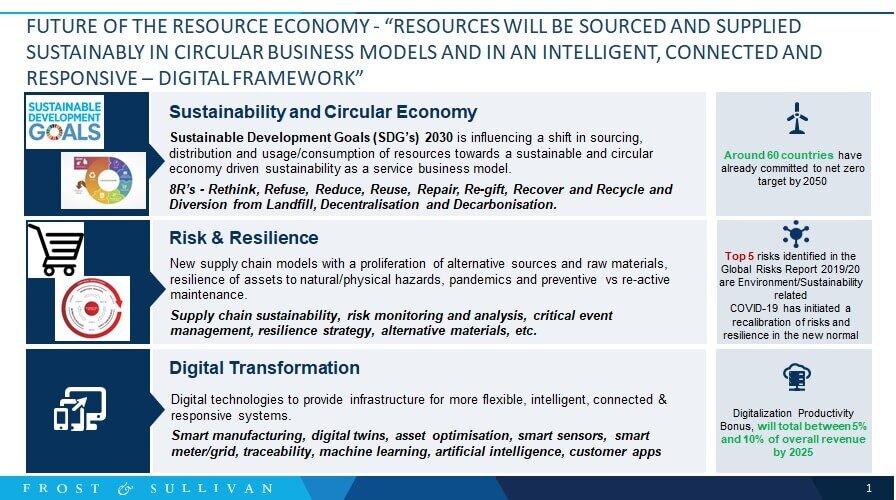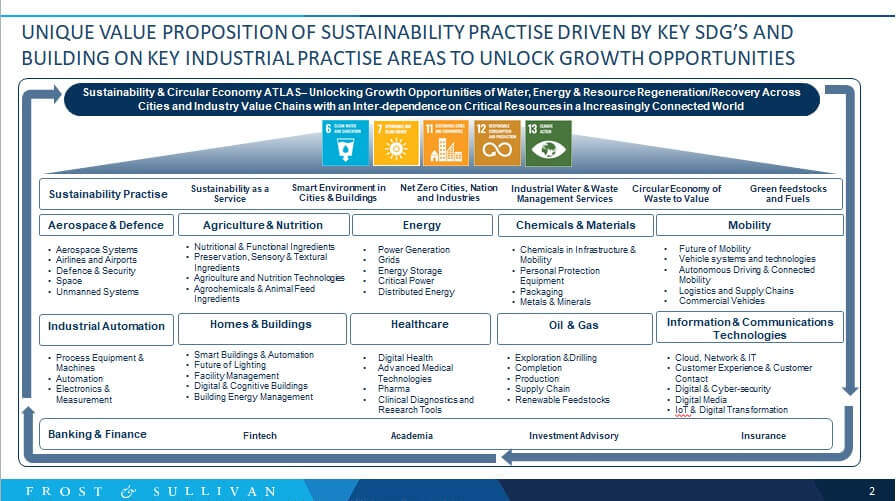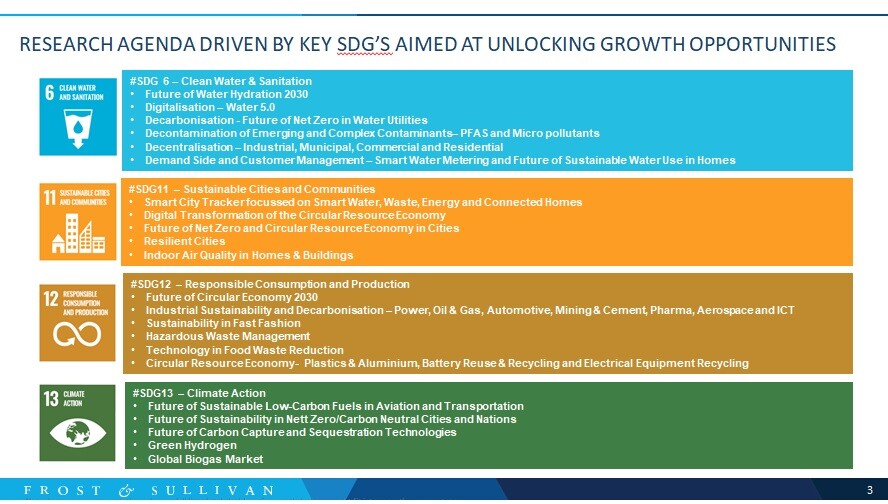As we commemorate World Environment Day on June 5th 2020 – it brings back some of the most cherished memories of my time in college as a member of the Seasons Nature Club where we organised environmental awareness programs for students, as well as treks to one of the most biodiverse forests in the world – the Western Ghats.
World Environment Day is an important initiative launched by The United Nations to drive global awareness, as well as action, focusing on the environment. The 2020 theme of biodiversity spotlights the vast sustainable and circular traits of our natural ecosystem as well as its connection to sustainability in cities and across industries. The report of the Intergovernmental Science-Policy Platform on Biodiversity and Ecosystem Services (IPBES) highlighted that the negative impacts on biodiversity affect the majority of Sustainability Development Goals. There is a significant potential of applying data science and combining it with the scientific knowledge and understanding of various domains and use tools such as artificial intelligence at addressing some of the key environment challenges around climate, water, energy and food as well as protecting our natural habitats and biodiversity. On these lines – it is great to witness initiatives such as the Planetary Computer launched by Microsoft which aims to harness its expertise in artificial intelligence (AI) to tackle global challenges in 4 key areas of climate change, bio-diversity, agriculture and water. A related initiative is the partnership between Microsoft’s AI for Earth program with National Geographic, which is looking to fund and support projects with open source models which upon success can be shared with the broader environment research community.
The current pandemic continues to have a devastating impact on communities and economies around the world. However, there is a growing consensus that it can also serve as an opportunity for us to reset, recalibrate and accelerate the focus on sustainability development goals with the help of the circular economy business model with a key lever of digital transformation. Recently, a letter from 200 businesses urged the UK government to ensure the COVID-recovery plan addressed key social concerns as well as accelerated the drive towards a clean and low carbon economy. This was on the back of a similar initiative proposed in May 2020 that CEO’s of 150 global corporations, backed by the United Nations with a collective voice, pushed for governments to keep science-based climate policy at the core of the COVID-19 recovery plans.
The coronavirus has highlighted the fragility of the global economy and the intrinsic links of supply chains and resources around the world serving many industries as well as essential services. In the coming months if the pandemic spreads and increases in the developing regions of South Asia, Africa and LATAM – there could be further disruption on supply and provision of basic essentials.
As both the developed and developing regions gradually get to grips with the crisis and begin the easing measures of the lockdown, the focus will turn on how to re-start the economy in what we see as a new normal. This period of the new normal could extend for one or many years to come until there is success in both developing a vaccine for the virus and rolling it out to the global population.
Future of the Water and Resources Economy
In my earlier blog, I highlighted the three key influencers that we see to shape the Future of the Resource Economy –
Sustainability Development Goals provide cities, nations, businesses, and industries with key principles, frameworks as well as much needed targets to aspire, measure and improve environmental performance concerning water, energy and material resources. The Circular Economy is beyond recycling and provides an innovative business model to strengthen the business case with revenue streams and the integration of the various stakeholders towards a common goal of sustainability.
Digital Sustainability to enhance resilience
In this new era, digital transformation is set to play a key role in accelerating research and innovation, remote operation of assets, traceability, management and delivery of services as well as enabling the use of data capture to increase productivity, efficiency as well as increase resilience.
With most parts of the world either in or easing out of lockdown to combat the virus, there has been a shortage of the workforce to operate critical infrastructure and provision of water and wastewater services. Many cities and utilities that had already deployed and invested in digital solutions various software platforms that can collect and analyse data and support remote monitoring and operation of a facility – have witnessed significant benefits. This has also resulted in an increased scaling up of the software services or even upgrading to value-adds of cloud-based services.
There is expected to be a significant investment in the digital transformation of the water infrastructure beginning to flow in from early 2021 with many utilities using the current environment to assess and ascertain the elements that would be best suited. There is already increasing concern about the risks posed by the coronavirus in wastewater and sludge, which will increasingly become a focus for monitoring. With regards to smart water metering, the volumes of the hardware are set to witness a significant drop with the stalling of meter deployments, however, utilities that have invested in smart water meters will be scaling up investments in analytics and software. The overall volumes for meters are expected to pick up in early 2021 and also will expect a boost with more utilities having ascertained the value of smart water meters during the lockdown.
The partnership between the World Bank and South Korea focussed on promoting the best practise of smart city and resilience could also witness an accelerated uptake in the coming years. South Korea has been a pioneer in smart infrastructure both in the water and waste management segments and its strength in both the deployment and successful utilisation of the same in managing a crisis such as the coronavirus has been seen as a global benchmark. It is also evident that with the stalling of major infrastructure projects this year most of the efforts of the World Bank will be focussed on assisting the governments in institutionalising the green recovery as well as digital as an integral part of the upcoming infrastructure projects.
We will see an added urgency for digital transformation focussed on the convergence of IT and OT in utilities and to identify key processes and areas for deployment of smart solutions for energy optimisation in pumping, optimising the use of chemicals, customer service improvement, billing revenue and accuracy, ensuring sustainability in operation as well as enhancing workplace safety as well as keeping pace with regulatory and technological changes.
I am looking forward to moderating a panel discussion at the upcoming 10th Annual Smart Water Network(SWAN) Forum conference scheduled for 24th July on the topic of “Digital Sustainability and Resilience in the new normal”. On the panel we will have Jennifer Sara – Global Director, Global Water Practise at the World Bank, Dr. Mark Fletcher – Director and Global Water Leader at Arup, Thomas Morrison, Director – Water Utility at Grundfos and Thomas Butcher, Head of Consultancy at the Met Office.
One of the other key fundamental drivers of digitalisation in the water, energy and waste management building on the smart city movement will be leveraging communication protocols, which have an essential role to play in the relay and transmission of data effectively and efficiently. We have seen in the smart water meter sector, utilities are still evaluating the various communication protocols to support the smart water meters being deployed in the rollouts. The communication protocols also play an even more significant role as we witness even more investment in sensors in the broader water and wastewater infrastructure – particularly in the treatment processes. LPWAN communication technologies such as LoRa and SigFox have been prominent and we will also see a role of NB-IoT in the broader infrastructure. On a related note, I am looking forward to speaking in a webinar organised by the LoRa Alliance scheduled for 25th June and focussed on LoRaWAN Solutions for Smart Water Management.
Sustainability and Circular Economy ATLAS
Building on the framework of the future of the resource economy, we are positioning the Sustainability & Circular Economy(S&CE) ATLAS. The vision of the ATLAS is to be the intelligence and decision support platform for our clients to unlock growth opportunities linked to recycling and resource recovery of water, energy and other critical resources in an increasingly connected world and catalyse innovation towards net zero.
We will be using our unique structure to leverage the vertical industrial practise area expertise and combining it with the horizontal expertise of sustainability to unlock growth opportunities for our clients focussed on the key sustainability development goals.
The overall aim of the S&CE ATLAS is to drive analysis of growth opportunities through thought leadership research topics and advisory services that are driven by the key sustainability development goals.
Digital Sustainability & Circular Economy is a common thread that connects the various areas of research focus including digitalisation and decarbonisation of water, smart city trackers focussed on water and waste, low carbon fuels in aviation as well as green hydrogen.
World Environment Day 2020 and the focus on biodiversity and nature, offers us all another opportunity to re-affirm our commitment to protect our habitats, increase awareness and drive action towards the sustainability development goals.






